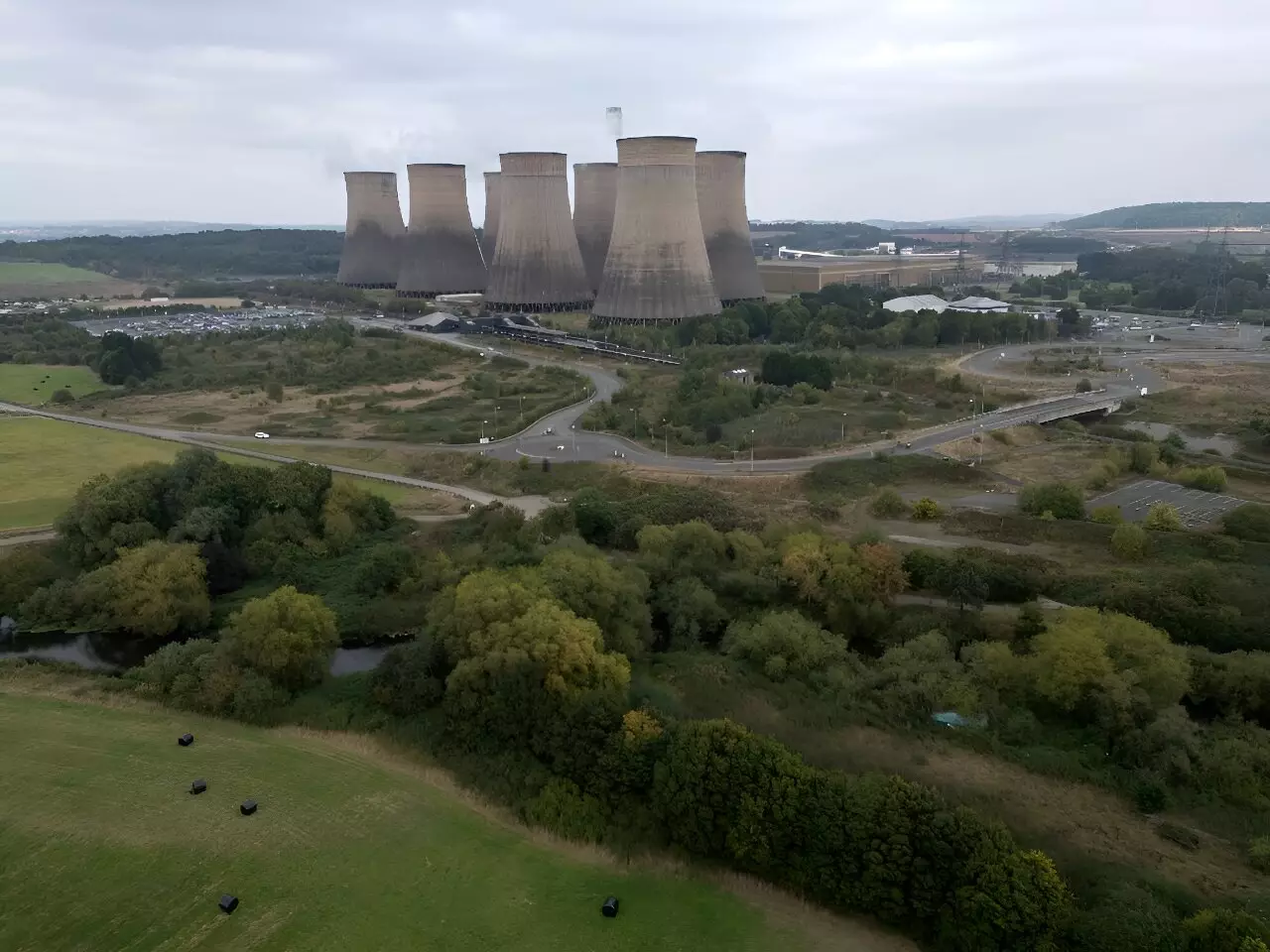The energy landscape of the United Kingdom has reached a pivotal moment as it bids farewell to its last operational coal-fired power station, signaling the country’s commitment to a cleaner, more sustainable energy future. This landmark event is not simply a case of shutting down a facility; it represents a broader, systemic shift away from fossil fuels that has profound implications for both the environment and the economy. The closure of the Ratcliffe-on-Soar power station in central England serves as a historic marker in Britain’s efforts to lead the world in reducing carbon emissions, making it the first among G7 nations to divest entirely from coal electricity.
Coal played an indispensable role in Britain’s energy generation for over a century, underpinning the Industrial Revolution that catapulted the nation to global prominence. However, with a growing awareness of the environmental consequences of reliance on fossil fuels, this dependency began to wane. By the late 20th century, stringent regulations aimed at curbing pollution initiated a decline in coal’s share of the electricity mix, which nosedived from a striking 70% in the 1980s to a mere 1% by the previous year.
The UK government has set ambitious goals for reducing carbon footprints through policies that aim for decarbonization of electricity by 2030 and achieving carbon neutrality by 2050. As Energy Minister Michael Shanks declared, “The era of coal might be ending, but a new age of good energy jobs for our country is just beginning.” This transition not only highlights the end of an era but also sets the stage for an evolving workforce aligned with renewable energy sources.
While the closure of Ratcliffe-on-Soar may evoke nostalgia for an energy source that once defined British power generation, it also raises pressing questions regarding the fate of the workers associated with the power station. Uniper, the plant’s owner, has announced that its 350 employees and contractors will have multiple options: staying with the company in different roles or opting for redundancy as the plant undergoes a two-year decommissioning process. This transition period underscores the importance of planning and support for employees as they navigate a changing labor market driven by new energy technologies.
Moreover, the promise of a “carbon-free technology and energy hub” in place of the closed power station symbolizes not just an end but a fresh beginning. This hub will potentially act as a catalyst for innovation, attracting investment and nurturing a workforce skilled in renewable energy technologies.
Britain’s closure of coal power is particularly significant when viewed through a global lens. The commitments by other G7 nations to phase out coal power are varied; while Italy aims to complete its transition by next year, Germany has set 2038 as its target. In contrast, countries like the United States and Japan remain without defined timelines for abandoning coal. The UK’s decisive action sends a message to other nations grappling with similar energy dilemmas: significant change is not just necessary but achievable.
As Doug Parr, policy director for Greenpeace UK, remarked, “Britain has set an example the rest of the world must follow.” This call to action is essential as the global community prepares for ongoing discussions concerning fossil fuel dependency, particularly in anticipation of international climate gatherings such as COP28.
In a time fraught with environmental challenges, the focus must now turn toward fortifying the UK’s renewable energy capabilities. Current statistics demonstrate that in 2023, natural gas constituted a third of electricity production, while renewables, especially wind power, accounted for a substantial quarter. As the country progresses, the government has outlined plans to bolster its green energy strategy—emphasizing offshore wind, tidal, and nuclear energy as key components of its future energy mix.
The conclusion of coal power does not merely signify an end; rather, it opens the door to an invigorated approach to energy that prioritizes sustainability and environmental stewardship. With each step taken away from fossil fuels, the UK not only safeguards its natural resources but also sets a standard for both current and future generations. As history moves forward, Britain’s evolution in energy production offers a compelling narrative of resilience, innovation, and responsibility.

